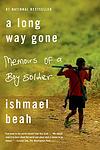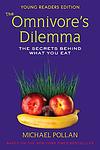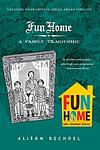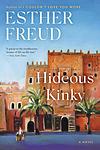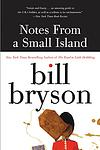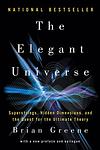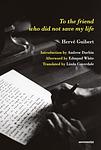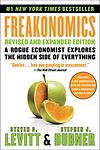The Greatest "Nonfiction" Books Since 1990
Click to learn how this list is calculated.
This list represents a comprehensive and trusted collection of the greatest books. Developed through a specialized algorithm, it brings together 286 'best of' book lists to form a definitive guide to the world's most acclaimed books. For those interested in how these books are chosen, additional details can be found on the rankings page.
Genres
Countries
Date Range
Reading Statistics
Click the button below to see how many of these books you've read!
Download
If you're interested in downloading this list as a CSV file for use in a spreadsheet application, you can easily do so by clicking the button below. Please note that to ensure a manageable file size and faster download, the CSV will include details for only the first 500 books.
Download-
26. The Warmth Of Other Suns by Isabel Wilkerson
"The Warmth of Other Suns" is a powerful and deeply moving narrative that chronicles the Great Migration, a significant event in American history that saw millions of African Americans leave the South in search of better opportunities and freedom from racial oppression. Through the compelling stories of three individuals, the book explores the challenges, triumphs, and sacrifices made by these courageous migrants as they embarked on a journey to find a new life in the North and West, ultimately reshaping the social and cultural landscape of America.
-
27. What Is the What by Dave Eggers
The novel is a fictionalized account of a real-life Sudanese refugee, Valentino Achak Deng, who was forced to flee from his village during the Second Sudanese Civil War. The story follows his harrowing journey as a child through Ethiopia and Kenya, his life in various refugee camps, and his eventual resettlement in the United States. The book explores themes of survival, identity, and the power of storytelling, while shedding light on the tragic history and ongoing humanitarian crisis in Sudan.
-
28. A Long Way Gone: Memoirs of a Boy Soldier by Ishmael Beah
This memoir recounts the harrowing experiences of a young boy forcibly recruited into the Sierra Leonean army during the country's brutal civil war. The narrative follows his journey from an innocent child fascinated with rap music to a hardened child soldier, who is eventually rescued by UNICEF and rehabilitated. The book provides a stark, firsthand account of the horrors of war and the resilience of the human spirit.
-
29. The Sixth Extinction: An Unnatural History by Elizabeth Kolbert
The book explores the concept of the sixth extinction, suggesting that we are currently in the midst of it due to human activity. By examining previous mass extinctions and the current rapid loss of species, the author argues that humans are causing a mass extinction event through climate change, habitat destruction, and spreading of non-native species. The book offers a sobering look at the impact of human behavior on the natural world, emphasizing the urgency of addressing these environmental issues.
-
30. The Emperor of All Maladies: A Biography of Cancer by Siddhartha Mukherjee
This book is a comprehensive history of cancer, its treatments, and the ongoing search for a cure. It presents an in-depth exploration of the disease from its first documented appearances thousands of years ago through the epic battles in the twentieth century to cure, control, and conquer it, to a radical new understanding of its essence. The book also discusses the politics of cancer research, the impact of patient activism, and the complex and often fraught relationships between researchers, oncologists, and patients.
-
31. The Omnivore's Dilemma by Michael Pollan
The book delves into the question of what we should have for dinner. It explores the paradox of the omnivore's dilemma, detailing the food chains that link farm to table, and explaining how the industrial revolution has changed the way we eat. The book also discusses the implications of our modern diet on our health and the environment, suggesting that we should return to more traditional methods of food production and consumption. It advocates for a more conscious and sustainable approach to eating.
-
32. Team of Rivals: The Political Genius of Abraham Lincoln by Doris Kearns Goodwin
This book explores the political acumen of Abraham Lincoln, focusing on how he assembled his cabinet from political adversaries, many of whom initially dismissed him for his perceived lack of experience and ungainly appearance. The narrative delves into how Lincoln used his rivals' talents to navigate the tumultuous times of the Civil War, maintaining unity and leading the nation towards the abolition of slavery. It underscores Lincoln's extraordinary ability to turn rivals into allies, demonstrating his leadership and his profound impact on American history.
-
33. Fun Home: A Family Tragicomic by Alison Bechdel
The graphic memoir revolves around the author's childhood and youth in rural Pennsylvania, United States, in the backdrop of a dysfunctional family. The story particularly focuses on her complex relationship with her closeted gay father, who was an English teacher, a funeral home director, and a historic home restorer. The narrative is non-linear, exploring themes of sexuality, gender roles, suicide, emotional abuse, and the role of literature in understanding oneself and one's family.
-
34. Into Thin Air by Jon Krakauer
This gripping non-fiction book recounts the tragic events of the 1996 Mount Everest disaster. The author, a journalist and experienced climber, was part of a commercial expedition to summit Everest. The expedition soon turned disastrous due to a severe storm, leading to the death of several climbers from various teams. The book provides a vivid, personal account of the harrowing ordeal, detailing the physical and psychological challenges faced by climbers at high altitudes, as well as the ethical and commercial aspects of mountaineering expeditions.
-
35. The Looming Tower by Lawrence Wright
"The Looming Tower" is a comprehensive historical examination of the events leading up to the 9/11 terrorist attacks on the United States. It delves into the origins of Al-Qaeda, the rise of Osama bin Laden, and the failure of U.S. intelligence agencies to prevent the attacks. The narrative is extensively researched and provides a detailed account of Islamic fundamentalism, the complex politics of the Middle East, and the role of the United States in the region. The book also explores the personal stories of key figures on both sides of the conflict.
-
36. Hideous Kinky by Esther Freud
A young woman travels to Morocco with her two daughters in search of a more fulfilling and adventurous life. The novel explores the experiences of the two young girls as they navigate this new and unfamiliar culture, their mother's search for spiritual enlightenment, and their struggles with poverty. The narrative is a poignant exploration of childhood innocence, the complexities of motherhood, and the clash of cultures.
-
37. Postwar by Tony Judt
"Postwar" is a comprehensive analysis of the history of Europe from the end of World War II to the early 21st century. The book examines the major political, cultural, social, and economic changes that have shaped the continent, including the Cold War, the rise and fall of the Soviet Union, the rebuilding of Western Europe, and the challenges of integrating Eastern Europe into the European Union. It also delves into the impact of these events on the daily lives of Europeans, exploring themes of memory, identity, and the struggle to come to terms with the past.
-
38. Nickel And Dimed by Barbara Ehrenreich
The book is a firsthand journalistic account of the author's experiment to survive on minimum wage jobs in America. She gives up her middle-class life to understand the reality of low-wage workers, working as a waitress, a hotel maid, a cleaning woman, a nursing home aide, and a retail chain employee. The book reveals the harsh and often overlooked conditions of the working poor, highlighting the struggle to afford even basic necessities, the lack of job security, and the physical toll of such work.
-
39. Kitchen Confidential by Anthony Bourdain
The book is an insider's account of the culinary world, revealing the harsh realities of restaurant kitchens. The author, a professional chef, shares his personal experiences, the good and the bad, in a brutally honest and witty manner. He provides an unvarnished look at the industry, from the chaotic kitchen environment and the high-pressure service, to the eccentric characters he has worked with. The book also includes his reflections on food culture, cooking techniques, and his own journey in the culinary field.
-
40. Notes from a Small Island by Bill Bryson
This humorous travel memoir features an American author's journey across the United Kingdom, where he had lived for two decades. Before returning to the United States, he decides to tour the country, using public transportation and staying in small-town accommodations. The book provides an amusing, and at times sarcastic, outsider's perspective on British life, culture, and idiosyncrasies, while also expressing a deep affection for the nation and its people.
-
41. Sapiens: A Brief History of Humankind by Yuval Noah Harari
This book provides a comprehensive exploration of the history of the human species, tracing back from the earliest forms of Homo Sapiens to the modern day. It delves into evolutionary biology, the development of cultures and societies, and the rise of major ideologies and technologies. The book also discusses the future of the species, posing thought-provoking questions about our roles and responsibilities in a rapidly changing world.
-
42. There Are No Children Here by Alex Kotlowitz
The book follows the lives of two young African-American brothers growing up in a public housing complex in Chicago during the 1980s. The narrative portrays their daily struggles with poverty, violence, and the drug trade, while also highlighting their dreams and hopes for a better future. The book provides an intimate and heartbreaking look at the harsh realities of inner-city life, systemic racism, and the failure of public institutions to support vulnerable communities.
-
43. The Elegant Universe by Brian Greene
"The Elegant Universe" by Brian Greene is a captivating exploration of the fundamental principles of physics, delving into the intricate world of string theory and its potential to unify the laws of the universe. Through vivid explanations and thought-provoking analogies, Greene takes readers on a journey from the early discoveries of Newton and Einstein to the cutting-edge theories of quantum mechanics and relativity. With a blend of scientific rigor and accessible language, the book offers a compelling narrative that challenges our understanding of space, time, and the nature of reality itself.
-
44. To The Friend Who Did Not Save My Life by Hervé Guibert
The book is a candid and harrowing autobiographical novel that chronicles the life of a man grappling with the devastating impact of AIDS during the early years of the epidemic. Through a blend of fact and fiction, the narrative delves into the protagonist's personal experiences with illness, the medical establishment, and the emotional complexities of friendship and mortality. As he confronts his own declining health, the protagonist reflects on the relationships with those around him, including a close friend who is also facing the disease, and the betrayal he feels when a promised miracle cure fails to materialize. The novel is a raw and poignant exploration of the human condition in the face of an unforgiving illness.
-
45. The Perfect Storm by Sebastian Junger
This non-fiction book narrates the story of the Andrea Gail, a commercial fishing vessel that was lost at sea during the "Perfect Storm" of 1991. The author combines meteorological science, history, and personal accounts to paint a vivid picture of the harrowing ordeal faced by these six fishermen. The book also explores the dangerous profession of deep-sea fishing and the tight-knit communities that are affected by such tragedies.
-
46. Between the World and Me by Ta-Nehisi Coates
The book is a profound work that explores the concept of race in America through the lens of the author's personal experiences. It is written as a letter to the author's teenage son, offering him a stark portrayal of his place in a society that is marked by racial injustice. The narrative provides a deeply personal analysis of American history and its lasting impact on the African American community, with the author sharing his experiences of fear, violence, and struggle. It is an exploration of the physical and psychological impacts of being black in the United States, and a call for a deeper understanding of the nation's racial history.
-
47. In the Heart of the Sea by Nathaniel Philbrick
This historical narrative tells the true story of the 19th-century whaleship Essex, which was rammed and sunk by a sperm whale in the South Pacific. Stranded thousands of miles from land, the crew of the Essex was pushed to their limits and forced to do the unthinkable to stay alive. The tale explores the harrowing ordeal of these men through their long journey at sea, their encounters with nature's fury, hunger, disease, and their own fear and despair.
-
48. All Over But The Shoutin' by Rick Bragg
The memoir is a heartfelt tribute to the author's mother who struggled to raise her three sons in dire poverty in the deep south. The author recounts his journey from a poor, white, uneducated family in Alabama to winning a Pulitzer Prize as a national correspondent. It is a story of love, loss, and redemption, showcasing the enduring strength and resilience of a mother's love amidst hardship and adversity.
-
49. Thinking, Fast and Slow by Daniel Kahneman
The book delves into the two systems that drive the way we think—System 1, which is fast and intuitive, and System 2, which is slow and deliberate. The author, a Nobel laureate, explores how these systems shape our judgments and decision-making. He presents several groundbreaking experiments that have shaped our understanding of human thought, revealing where we can trust our intuitions and how we can tap into the benefits of slow thinking. The book also discusses how our cognitive biases often lead to errors in judgment and affect our decision-making processes.
-
50. Freakonomics by Steven D. Levitt, Stephen J. Dubner
This book explores the hidden side of everything, debunking conventional wisdom and revealing surprising connections between seemingly unrelated things. It uses economic theories to explain social phenomena such as the decrease in crime rates in the 1990s, the impact of a person's name on their life outcomes, and the inner workings of drug gangs. By using data and statistics, it challenges the way people think about the world and encourages them to question the accepted truths in society.
Reading Statistics
Click the button below to see how many of these books you've read!
Download
If you're interested in downloading this list as a CSV file for use in a spreadsheet application, you can easily do so by clicking the button below. Please note that to ensure a manageable file size and faster download, the CSV will include details for only the first 500 books.
Download

